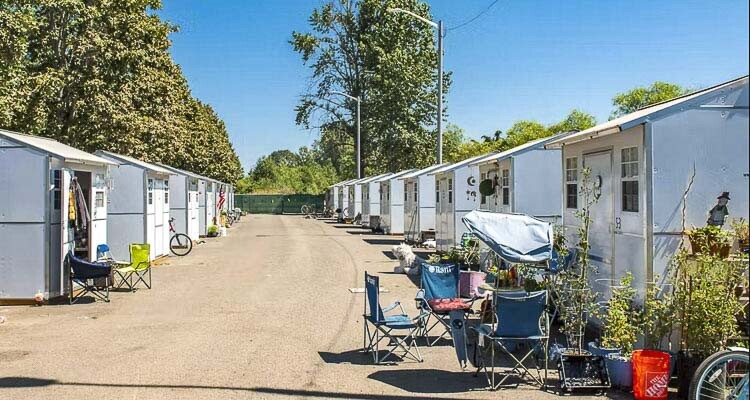
RSV Solutions Chairman/CEO Ron Frederiksen shares his analysis of Vancouver’s Safe Stay 3 temporary homeless shelter project
Dear Friends and Neighbors,
The city of Vancouver is now under construction on the Safe Stay 3 temporary homeless shelter project on a downtown block that previously was home to the Children’s Center and New Heights Church. The site was purchased with private funds and the buildings were demolished a few years ago.

I have followed the discussion closely because I am deeply concerned about our growing homeless crisis and its many causes, consequences, and recovery pathways. I have contributed personally and professionally in many ways throughout my career to provide support to those who struggle. The property is also situated across the street from an office that served as my company’s headquarters for more than three decades.
After nearly a year of repeated requests to meet with decision-makers, City staff finally agreed to a meeting in August. I was prepared to share my professional suggestions for how the temporary project could be built less expensively and with a site plan that would be more acceptable to neighbors. City staff demonstrated virtually no interest in entertaining changes to their plan. That is their prerogative even though I was disappointed with their reluctance to receive suggestions.
Due to many requests, I am sharing a few observations about the project, with information from publicly available documents, construction industry standard practices and source documents from a forensic accountant.

Overall, it appears that the Safe Stay 3 project will cost about $4.1 million, with about $2.8 million for site management, and $1.3 million for construction, pallet shelters and related costs.
The contract for Safe Stay 3 ends December 2025. If the property opens in October 2023, then it can operate for just 27 months. With 20 separate pallet units planned, the overall cost of installing these facilities and site management exceeds $7,600 per unit per month.
Removing site management, the cost exceeds $2,400 per unit per month. This can be compared to current average apartment rents in Vancouver and Portland of about $1,750 a month.
When considering total costs, taxpayers could support five times the number of family units by simply renting apartments at market rate for those who are unsheltered. For my tax dollar, I prefer helping five times as many people who are in need.
One might question the practicality of this comparison given that our region and country are suffering from a shortage of apartment capacity. A significant chunk of the expenses for Safe Stay could incentivize the creation of more market rate housing rather than on creating and managing temporary sites.
Another alternative is to refocus Safe Stay funds to create large emergency relief centers where the homeless can receive the basic care and services they need. With about 600 unsheltered homeless in our city and county, and the numbers growing every year, I see no way we can get ahead of the crisis with the city’s intention of building just five Safe Stay projects, each limited to three years or less.
I appreciate city leaders having the courage to pursue new solutions despite the disastrous handling of the Navigation Center on Grand Avenue. So far, Safe Stays 1 and 2 appear to be on a much better path, and Safe Stay 3 probably will too. But Safe Stays are not the solution and costs are continuing to grow.
As a community we must find smarter solutions … and quickly.
Sincerely,

Ron Frederiksen
CEO, RSV Building Solutions
Also read:
- POLL: Why did voters reject all three tax proposals in the April 22 special election?Clark County voters rejected all three tax measures on the April 22 special election ballot, prompting questions about trust, affordability, and communication.
- Opinion: The war on parental rightsNancy Churchill argues that Olympia lawmakers are undermining voter-approved parental rights by rewriting key legislation and silencing dissent.
- Opinion: An Earth Day Lesson – Last year’s biggest environmental victories came from free marketsTodd Myers argues that Earth Day should highlight free-market solutions and grassroots innovation as more effective tools for environmental stewardship than top-down mandates.
- Opinion: Time to limit emergency clauses and give voters a choiceTodd Myers urges the governor to remove emergency clauses from bills that appear intended to block voter input rather than address real emergencies.
- Letter: C-TRAN Board improper meeting conductCamas resident Rick Vermeers criticizes the C-TRAN Board for misusing parliamentary procedure during a controversial vote on light rail.










